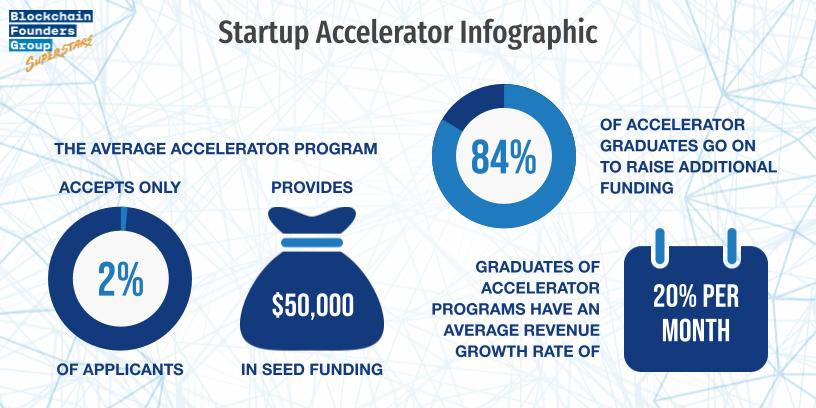
Embark on a journey through the world of Startup accelerator programs, uncovering the key elements that lead to success in the startup ecosystem.
Learn about the defining features, selection criteria, success stories, and funding insights that shape the path for aspiring entrepreneurs.
What are startup accelerator programs?
Startup accelerator programs are designed to help early-stage startups grow and succeed by providing them with resources, mentorship, and funding over a fixed period of time, usually ranging from a few months to a year. These programs aim to accelerate the growth of startups by offering guidance, networking opportunities, and access to investors.
Benefits of participating in a startup accelerator program
- Access to mentorship from experienced entrepreneurs and industry experts.
- Networking opportunities with other startups, investors, and potential partners.
- Potential funding through investments from the accelerator or introductions to investors.
- Structured support and guidance to help startups refine their business models and strategies.
- Exposure and visibility that can help startups attract customers, partners, and talent.
How startup accelerator programs differ from other types of startup support
- Intensive and time-bound: Accelerator programs have a fixed duration and require full-time commitment from participants, focusing on rapid growth and progress.
- Structured curriculum: Accelerators offer a structured program with workshops, mentoring sessions, and milestones to help startups achieve specific goals.
- Equity investment: Accelerators typically take equity in participating startups in exchange for funding and support, aligning their interests with the success of the startups.
- Focus on growth: Accelerator programs are designed to help startups scale quickly and achieve significant growth within a short period.
- Strong network: Accelerators provide access to a network of mentors, investors, and alumni that can support startups beyond the program.
Common features of startup accelerator programs

Startup accelerator programs typically offer the following key features to help early-stage companies grow and succeed:
Mentorship
Mentorship is a crucial aspect of startup accelerator programs, where experienced entrepreneurs, industry experts, and investors provide guidance and advice to the founders. This mentorship helps startups navigate challenges, make strategic decisions, and avoid common pitfalls in the entrepreneurial journey.
Networking Opportunities
Startup accelerator programs provide valuable networking opportunities for founders to connect with other entrepreneurs, investors, potential customers, and industry professionals. Building a strong network can open doors to partnerships, collaborations, funding, and valuable insights that can accelerate the growth of the startup.
Access to Funding
Many startup accelerator programs offer access to funding through seed investments, venture capital connections, or demo days where startups pitch their ideas to potential investors. This financial support is crucial for startups to scale their businesses, develop products, and reach new markets.
Curriculum and Workshops
Accelerator programs often include a structured curriculum with workshops, seminars, and training sessions covering various aspects of building a successful startup. Topics may include business model development, marketing strategies, financial planning, pitching skills, and legal considerations.
Coworking Space
Some accelerator programs provide coworking space for startups, creating a collaborative environment where founders can work alongside other entrepreneurs, share resources, and exchange ideas. This shared workspace fosters creativity, innovation, and a sense of community among the participating startups.
How to choose the right startup accelerator program
Choosing the right startup accelerator program is crucial for the success and growth of your startup. Here are some criteria to consider when evaluating and selecting the most suitable program:
Evaluating Criteria
- Focus Area: Ensure the accelerator program aligns with your startup’s industry or sector to benefit from industry-specific mentorship and resources.
- Track Record: Research the success stories of previous cohorts to gauge the effectiveness of the program in helping startups achieve their goals.
- Network: Consider the quality of the accelerator’s mentor network and connections to potential investors and partners.
- Program Duration: Evaluate the length of the program and determine if it provides enough time for your startup to achieve significant progress.
- Equity vs. Non-equity: Decide if you are willing to give up equity in exchange for the program’s benefits or prefer non-equity options.
Application Processes
- Application Requirements: Compare the application criteria of different accelerator programs and ensure you meet the eligibility requirements.
- Selection Process: Understand how startups are selected for the program, whether it’s through interviews, pitch competitions, or other methods.
- Timeline: Take note of the application deadlines and program start dates to plan your application process accordingly.
- Feedback: Consider programs that provide constructive feedback on your application, even if you are not selected, to help improve your chances in the future.
Research and Identification
- Attend Information Sessions: Participate in information sessions or webinars hosted by accelerator programs to learn more about their offerings and ask questions.
- Seek Recommendations: Ask for recommendations from other entrepreneurs who have gone through accelerator programs to get insights and feedback.
- Visit Demo Days: Attend demo days or pitch events organized by accelerator programs to see the startups in action and assess the program’s impact.
- Consider Location: Factor in the location of the accelerator program and whether it provides access to key markets, investors, and resources for your startup.
Success stories from startup accelerator programs

Startup accelerator programs have played a significant role in shaping the success stories of numerous startups. These programs provide valuable resources, mentorship, and networking opportunities that can propel a startup towards growth and success. Let’s explore some examples of startups that have thrived after participating in accelerator programs.
Airbnb
- Airbnb, the global online marketplace for lodging and tourism experiences, participated in the Y Combinator accelerator program in 2009.
- During the program, Airbnb received guidance from experienced mentors, access to funding, and exposure to a network of investors and industry experts.
- After completing the accelerator program, Airbnb implemented strategies to scale its platform, improve user experience, and expand its global presence.
- Today, Airbnb is a multi-billion dollar company with millions of users worldwide, showcasing the impact of accelerator programs on startup success.
Dropbox
- Dropbox, a cloud-based file storage and collaboration platform, participated in the Y Combinator accelerator program in 2007.
- Through the program, Dropbox received mentorship on product development, marketing strategies, and fundraising tactics.
- After the accelerator program, Dropbox focused on user acquisition, product innovation, and strategic partnerships to drive growth.
- As a result, Dropbox became a leading player in the cloud storage industry, serving millions of users globally and achieving a successful IPO.
Stripe
- Stripe, a payment processing platform for online businesses, went through the Y Combinator accelerator program in 2010.
- During the program, Stripe refined its business model, enhanced its technology infrastructure, and built key partnerships in the financial industry.
- Post-accelerator, Stripe focused on expanding its product offerings, improving payment processing efficiency, and entering new markets.
- Today, Stripe is a leading player in the fintech sector, valued at billions of dollars, showcasing the transformative impact of accelerator programs on startup growth.
Relationship between startup accelerator programs and startup funding

Accelerator programs play a crucial role in helping startups secure the necessary funding to grow and scale their businesses. By providing mentorship, networking opportunities, and resources, accelerator programs can significantly increase a startup’s chances of attracting investors.
Attracting Investors through Accelerator Programs
Accelerator programs often have a network of investors who are actively looking to fund promising startups. By participating in these programs, startups can get direct access to these investors through pitch events, demo days, and networking sessions. This exposure can help startups showcase their potential and attract the attention of potential investors.
- Accelerator programs help startups refine their business models, develop a strong value proposition, and create a compelling pitch deck that resonates with investors.
- Startups that successfully complete accelerator programs are seen as less risky investments by investors, as they have already been vetted and validated by experienced mentors and advisors.
- Accelerator programs can also provide startups with the necessary tools and knowledge to negotiate favorable terms with investors, ensuring that the funding they receive aligns with their long-term goals and objectives.
Preparing Startups for Fundraising
Participating in an accelerator program can be instrumental in preparing startups for the fundraising process. These programs offer intensive training, workshops, and one-on-one mentorship to help startups refine their business strategies, financial projections, and investor pitch.
Accelerator programs help startups build credibility and establish a track record of success, making them more attractive to potential investors.
- Accelerator programs can assist startups in identifying the right investors for their specific industry and stage of growth, increasing their chances of securing funding.
- By providing guidance on valuation, term sheets, and investor expectations, accelerator programs empower startups to navigate the fundraising landscape with confidence and clarity.
- Through mentorship and feedback, accelerator programs help startups address any weaknesses or gaps in their business that may hinder their ability to attract investors.
In conclusion, Startup accelerator programs serve as a beacon of opportunity, providing a launchpad for innovative ideas to flourish and thrive in the competitive market landscape.
FAQ Insights
How do startup accelerator programs differ from other types of startup support?
Startup accelerator programs offer intensive mentorship, networking opportunities, and a structured curriculum to fast-track the growth of startups, setting them apart from traditional support mechanisms.
What are the key features typically offered by startup accelerator programs?
Common features include seed funding, workspace, mentorship, access to investors, and demo days to showcase the startup’s progress.
How can participation in an accelerator program help startups attract investors?
By gaining validation and support from reputable accelerator programs, startups increase their credibility and visibility, making them more appealing to potential investors.
What role do accelerator programs play in preparing startups for fundraising?
Accelerator programs equip startups with essential skills, connections, and pitch refinement techniques necessary to secure funding from investors, ensuring they are well-prepared for the fundraising journey.





